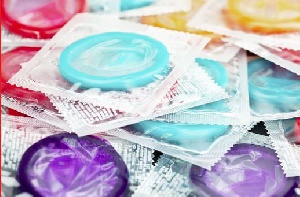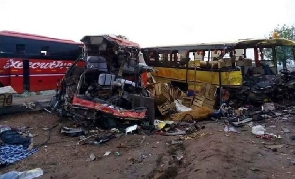The Chief Fisherman of the Tema Canoe landing beach, Nii Odametey II, has appealed to the Fisheries Ministries to ensure that illegal foreign vessels do not encroach into the country’s waters in order to sustain the local fishing industry.
According to Nii Odartey ll, some of the pair-trawlers that operate illegally in the country’s territorial waters are unregistered and deplete the fish stock. He said, foreign vessels -- which they usually called ‘China-China’ -- deplete the fish resources as they use modern equipment in over-exploiting fish resources. “This method is not encouraging new breeding of species, but is a major contributing factor to collapse of the industry”.
Nii Odartey ll further explained that pair-trawlers sweep the bed of the sea, and collect all the big fish, and even the fingerlings (smaller fish or species) which should be conserved to grow and breed more.
“These vessels flout the laws of the industry as their licences do not permit them to catch fingerlings.” As a result, local fishermen’s harvest is low: describing it as worrying, he said it has compelled some local fishermen to engage in unorthodox methods as well as going to fish in other coasts in the sub-region.
He told the B&FT that the once-vibrant sector that serves as a source of employment and livelihood is dying. Nii Odametey thus called on government to strictly enforce the fisheries Act 625 of 2002 and enhance surveillance on the activities of foreign vessels in our territorial waters.
“Authorities should also endeavour to institute stringent punishments for both foreign and local fishermen who flout the law, to serve as a deterrent to others,” he added.
The chief fisherman also disclosed that most of such vessels on the country’s waters are not new, explaining that they were operating in other parts of the West African coast before being sent away as a result of flouting the rules of those countries -- and made their way to Ghanaian waters.
He said: “If foreign vessels are not sacked, it will destroy our waters to the extent that not a single fish can be caught -- and this will lead to unemployment among the local fishermen and our mothers who are into fish-mongering, frying and drying business”.
He reiterated that government should as a matter of urgency adopt proper management and conservation measures to ensure that our fish resources are not endangered by over exploitation by these vessels.
Due to low catch, Ghanaian fishermen tend to fish in other African water sources -- such as Togo, Benin, Cameroun, Nigeria, and Senegal -- with adherence to the laid-down policies of those countries.
Nii Odametey however lamented illegal practices in fishing, such as the use of underweight nets, light devices, pair-trawling, unauthorised fishing gear, chemicals such as DDT, carbides, as well as dynamite and other explosive chemicals for the purpose of easy fish catch – which are not the best for the sector.
“Our own fishermen are also the downfall of our sector, if most of them are using negative methods our water will soon be polluted and the fish will migrate from our waters to other African waters,” he stressed.
Nii Odametey is worried about the practice of using light devices among fishermen, explaining that today both small and big canoes go fishing with about three generators to enhance good catch, displaying their equipment with disregard to the negative impacts.
Business News of Tuesday, 14 April 2015
Source: B&FT













